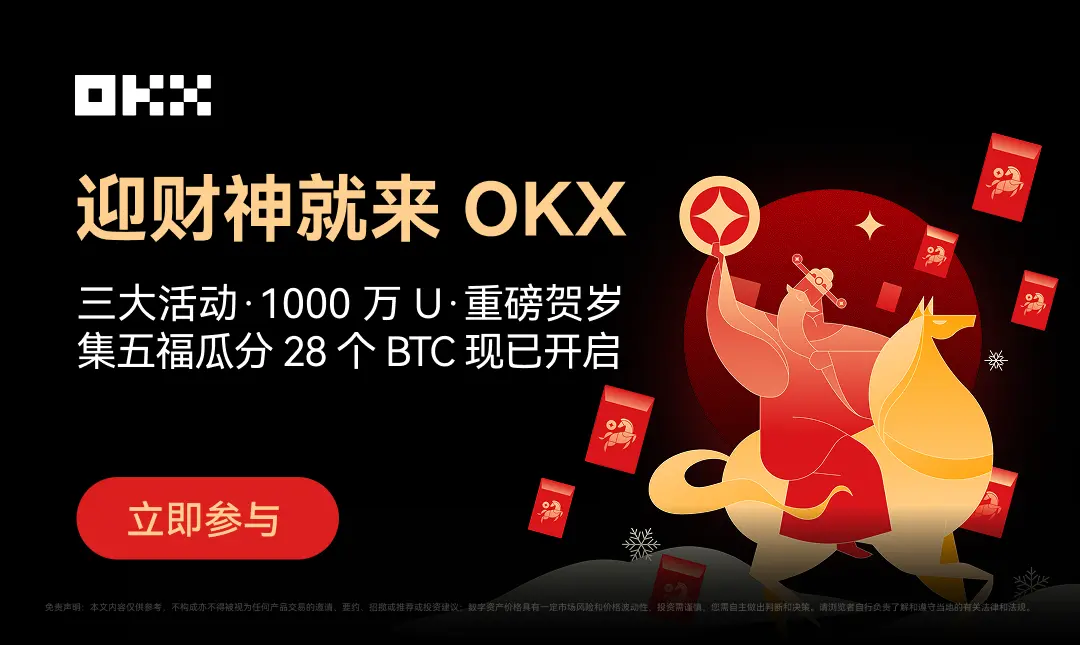Support BRC20, OKX MPC non-custodial wallet boosts Bitcoin ecosystem growth
Author: 0xming
The current number of active Bitcoin addresses is only 788,900, compared to the hundreds of millions of daily active users of Web2 apps, indicating that there is still significant growth potential in the Bitcoin ecosystem.
As the entry point to the Bitcoin on-chain world, wallets will play a crucial role. However, according to The Daily Hodl, at least 4 million Bitcoins have been permanently lost due to lost or stolen private keys, and this number is expected to continue to rise, causing significant losses for holders. Additionally, as a large number of users flood into the Bitcoin ecosystem with inscriptions, there are higher demands for Bitcoin ecosystem wallets in terms of convenience and functionality, in addition to security. The emergence of the OKX MPC non-custodial wallet helps users address the private key issue while allowing them to explore interactive Bitcoin ecosystem applications more easily. Recently, the OKX MPC non-custodial wallet announced support for BRC20, becoming one of the first MPC wallets to support the Bitcoin inscription ecosystem, potentially facilitating a large influx of new users into the Bitcoin network.
No Need to Manage Private Keys, Recoverable if Lost
Private keys represent the sole control over wallet assets, and losing them or having them stolen means a loss of user assets. The OKX MPC non-custodial wallet allows users to avoid the need to memorize and manage wallet private keys, and even in extreme situations caused by individuals or platforms, users can still regain control of their wallets. For example, if a user loses their phone or accidentally deletes their wallet, they can recover their wallet through iCloud or by logging into their exchange account. In the event of an emergency scenario on the platform, the "Emergency Escape" feature can be used to export the private key and withdraw assets using two private key shares managed entirely by the user.
The OKX MPC non-custodial wallet is implemented based on Multi-Party Computation (MPC) and Threshold Signature Scheme (TSS) technology. The basic principle is that when creating a private key, each participant generates and stores their own "private key share." When a user initiates a signature, the participating parties use their "private key shares" to collectively create a complete signature. Throughout this process, no complete private key is generated, and the "private key shares" are not exposed to each other.
Users do not need to call all "private key shares" simultaneously for signing; the OKX MPC non-custodial wallet is the first 2-of-3 multi-chain non-custodial wallet on the market, meaning it generates three "private key shares," and only two of them are needed for signing. Specifically, the OKX server generates one private key share, while the user's device generates private key shares 2 and 3, with private key share 2 encrypted and stored on the user's device, and private key share 3 encrypted and backed up to iCloud or Google Drive. For transaction signing, private key share 1 and private key share 2 are used, while private key share 3 serves as a backup.
Unlike on-chain multi-signature methods, the signing in an MPC wallet is completed off-chain, offering advantages in terms of cost, privacy, and compatibility. Even if a "private key share" is lost, control of the wallet can be restored through re-sharing. On-chain multi-signature methods are more secure and transparent, but when a "private key share" is lost, it often requires a new plan to be formulated.
The OKX MPC non-custodial wallet "requires no management of private keys and is recoverable if lost," enhancing the security and convenience of Web3 wallets, making it more user-friendly, and achieving a truly decentralized self-custodial non-custodial wallet. Users can freely explore the increasingly rich on-chain interactions, and even when faced with various cleverly disguised phishing links that may lead to some private keys being stolen or lost, their assets remain secure. Lost private key shares can be recovered through various means, and users still retain full control.
Supporting the Growth of the Bitcoin Ecosystem
The Ordinals protocol has ignited a wave of inscriptions in the Bitcoin and crypto world, and as Bitcoin's price rises, market attention and funds are returning to the Bitcoin network. Bitcoin is transitioning from digital gold to more possibilities, but because Bitcoin does not support smart contracts, its lagging ecosystem infrastructure actually presents more opportunities for innovation. More and more projects are attempting to replicate the prosperity of Ethereum Layer 2, and by anchoring the value of Bitcoin, Bitcoin Layer 2 appears "more expensive," but will certainly differ from Ethereum's DeFi Lego-like composability. Additionally, with the development of narratives such as Bitcoin spot ETFs and halving, the Bitcoin ecosystem is bound to show significant growth potential in the next bull market.
A large influx of new users is entering the Bitcoin ecosystem, but due to pain points in private key security, interaction costs, and wallet functionality, there are higher demands for Bitcoin ecosystem wallets, which will be crucial for the growth of the Bitcoin network system.
Recently, the OKX MPC non-custodial wallet announced support for the BRC20 standard and the Ordinals market, becoming one of the first MPC wallets to support the Bitcoin inscription ecosystem. This not only allows users to enjoy a more secure and convenient wallet experience without managing private keys but also enables one-stop transfers, trading, and inscribing of BRC-20 and BTC NFTs through support for the Ordinals market, with no platform service fees for interactions, allowing users to explore the rapidly evolving Bitcoin ecosystem.
For the vast new user base, convenience and security are the fundamental and core competitive advantages of a wallet. Only wallets like the OKX MPC non-custodial wallet, which build a solid foundation and continuously innovate diversely, can meet and adapt to user needs.
The Web3 infrastructure is not mature, and the application scenarios have yet to be fully imagined. Many products impose abstract concepts and complex operational steps that are not within the user's consideration, significantly increasing the barriers to use. Although current Web3 on-chain applications attract many speculators, yield farmers, and developers, these are far from the regular users of the Web2 world, and the gap from the over 5 billion users of Web2 is still vast. How to penetrate from the most frequent and important applications for users, simplify and enhance the user experience of these applications, has become a point of reflection for the industry.































